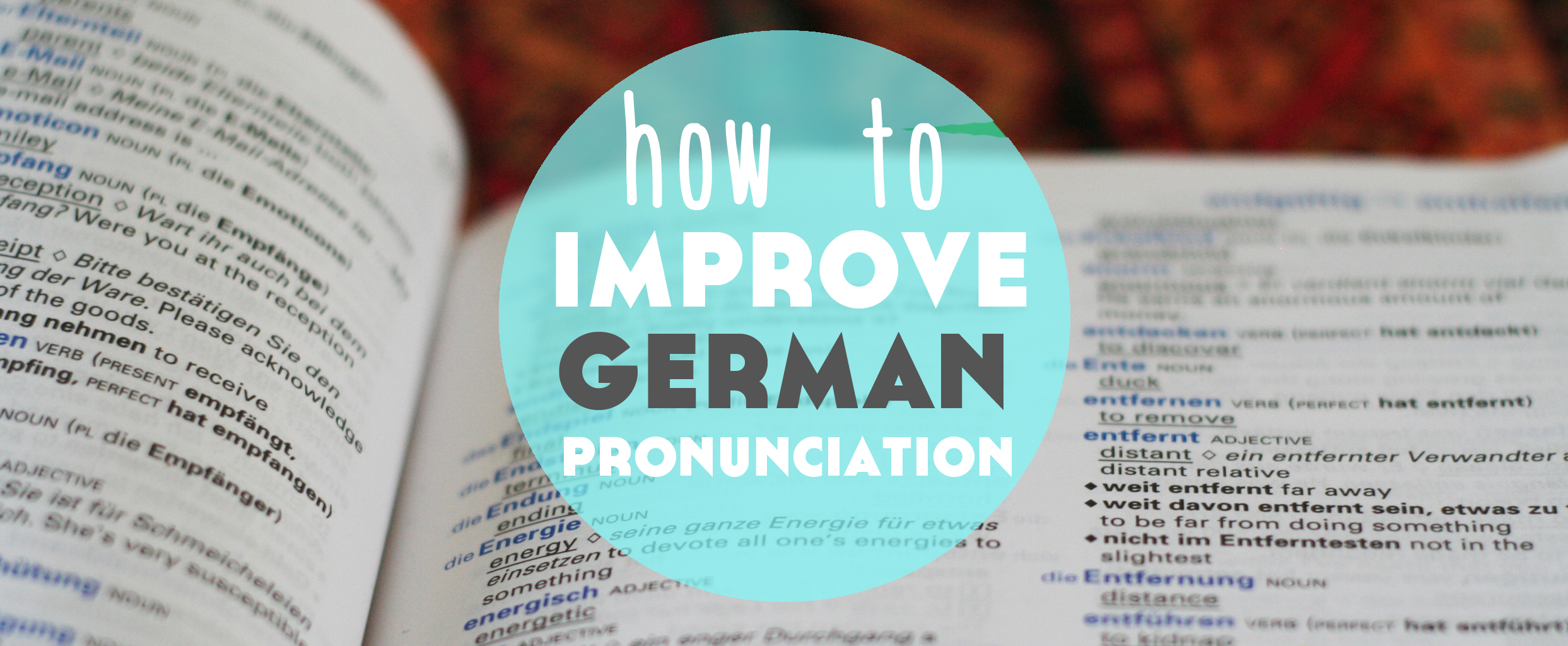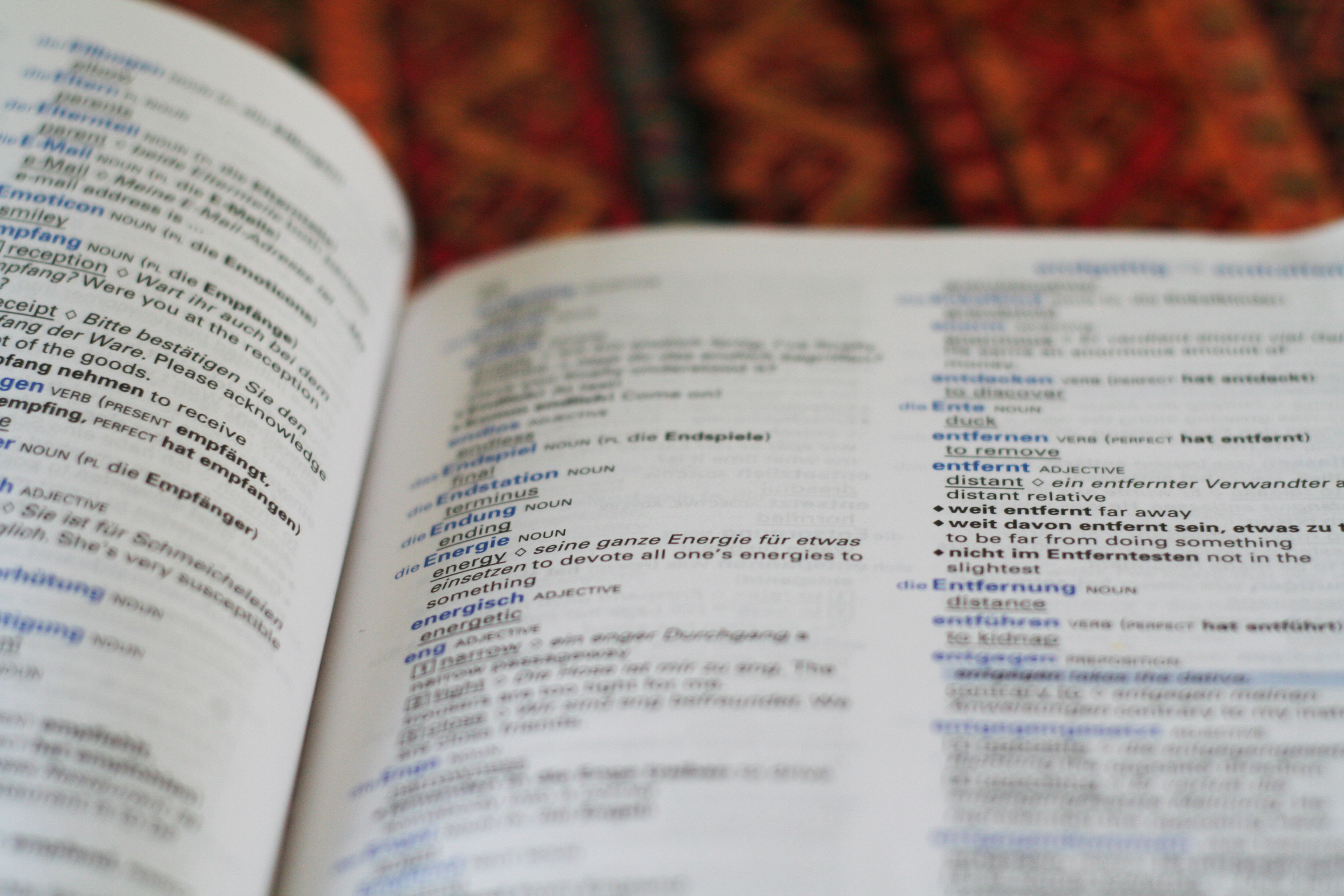September 7th, 2015
12 Top Tips: How to Improve German Pronunciation
German is a language I don’t write about much on the blog. Despite that, and not using it regularly in everyday life, it’s actually one of my better languages. In fact, one of the first things I blogged about was my progress improving my German speaking. Not only that but my very first YouTube video actually features me speaking shaky and weak German!
So I guess I have German to thank for giving me something to blog about way back when. Danke! With that in mind, today I want to share some tips to improve German pronunciation. Some of these tips would also be suitable for learning other languages, so if you’re not currently a Deutsch learner, keep reading. I promise there’ll be something here for you too.

Tip 1 – Rhinospike
Rhinospike is a great tool that I just don’t use enough. Must. Use. More. It’s completely awesome, completely useful, and completely free.
The idea is that you submit a text you wish to be spoken by a native speaker to help you get to grips with how it would really sound in your target language. This can be as simple as a short list of individual words or as complex as a longer text to improve your fluidity in the language.
I was lucky enough to meet the founder at this year’s Polyglot Gathering in Berlin and even came away with a sticker. I have to say though, I’m the worst with stickers. I can never decide where to stick them. Look at my sticker collection waiting to be stuck.
I know. The shame. Anyway, Rhinospike is good!
Tip 2 – Speak German Like a Native
Hooray! My good friend, fellow language blogger, and podcasting buddy, Kerstin Cable has recently released her new online video course which focuses on German pronunciation. It’s called Speak German Like a Native, which is pretty much what we’re aiming for, right?
Kerstin uses Hochdeutsch throughout the course, which is presented at an enjoyable and steady pace. There’s also no deadline for the course meaning you can study whenever suits you best.
However, the best part is that you can watch and download the individual videos on your computer and use the Gumroad app to learn on the go.
Kerstin has done a great job putting this course together and it will be a great help in perfecting your German pronunciation. You can buy the course by clicking right here
Tip 3 – italki
Of course, the best way to improve your pronunciation, a spoken skill, is by…speaking. Italki can help you out there. As I mentioned in the intro, it’s what I used to boost my speaking level in German from this to this. Über proud.
Find yourself a tutor or even a language exchange partner and get chatting. I understand speaking can be quite nerve-racking for some but if it’s nifty pronunciation you’re after, then it’s an inevitable hurdle to cross.
Make the first step today – book a session; then the accountability will make you more likely to go ahead with the lesson once it’s booked. You can do it.
Tip 4 – Remember the tricky bits
There are some notorious sounds to pronounce in any language. In German, we’re probably going to be looking at those ‘ch’ sounds and wanting to just skip over them as if they’re not even there. The best thing to do is to take a little time to familiarise yourself with these without driving yourself crazy trying to repeat to absolute perfection.
But one sound on its own isn’t enough. It’s kind of unlikely you’ll just walk around going “CH…CH”. Find some common words and sentences with the sound and use these as your practise points.
Tip 5 – Get Germanized
The ever-popular German YouTuber, Dominik, otherwise known as MeisterLehnsherr or Get Germanized, brings you plenty of videos about the German language and culture, including many of specific pronunciation difficulties such as the video below.
His videos are fun and entertaining as well as educational, which is always a nice little bonus. It would be ideal to search his channel when you’ve got a particular niggle about pronouncing a certain letter of letter combination.
Tip 6 – Easy German
Speaking of YouTube, one of my absolute favourite YouTube channels is Easy Languages and as it happens, they have A LOT of German videos. WOO! (You can check all of their German playlists here.)
The videos are normally native speakers interviewing people in the streets. This means that the German spoken is completely spontaneous on the part of the interviewees, but repetitive on the part of the interviewers.
Why is this a good thing? In terms of pronunciation you can watch the videos through a couple of times, beginning with focusing on repeating the questions asked by the interviewer and perfecting that before re-watching and repeating the answers. Don’t worry if that sounds super tricky – all the videos have subtitles in both German and English.
Tip 7 – Tongue twisters!
I apologise if I just filled you with fear and dread at the thought of German tongue twisters. Seriously though, they can be a great (and slightly more enjoyable) way to master those tricky sounds.
After all, the reason they’re called tongue twisters is because they’re difficult to say! There’s a brilliant list to start you off here.
Related: The Ultimate Guide to Language Learning Podcasts
Tip 8 – Forvo
Forvo is something I’ve been introduced to pretty recently by a wonderful and regular participant in the Instagram Language Challenge, CATRIN.
In their own words, Forvo is the “largest pronunciation guide in the world”. Say what?! That’s pretty cool.
It’s a beautiful idea – similarly to Rhinospike, you can also share your recordings of pronunciation of your native language as well as access recordings in your target language, in our case, German. A little bit of give and take. A beautiful cycle.
In fact, German is currently the largest collection of words. We’re in luck!
Tip 9 – Read out loud
This may sound ridiculously simple but once you’ve got an idea of how you should be speaking, try reading things out loud. Probably best to do this alone to avoid being disowned by your family and friends.
During my language studies over the past 6 years with The Open University, I’ve often read the articles and texts in the books out loud to make the task doubly useful.
Not only will you be reading, but you’ll also be speaking. Double whammy, back of the net, score, and all that. Oh, but there’s more. If you really want to maximise your time here, you could also record yourself speaking, giving you something to listen back to and notice your mistakes.
That last step may sound like an incredibly depressing extra but, hey, if we don’t make mistakes we don’t know what we’re doing wrong. There’s that cheesy line, ‘the only mistake is not learning from your mistakes’.
Eww, cringe. I just blushed and screwed up my face.
Tip 10 – Get into the flow
Good pronunciation in a language isn’t just about sounding out each letter perfectly. You also need to get familiar with the intonation and general flow of a language. For example: speaking German with Spanish intonation might not quite have the desired effect if you’re aiming to improve your German pronunciation.
Singing along to music and shadowing native speaker audio are two great ways to get started with this. Don’t worry about always repeating every word perfectly, instead focus at times on repeating at the right speed and with the right intonation and pitch. This is something I tend to do (alone!) in the car.
Tip 11 – Accept your foreign accent
So, this post may well be about improving your German pronunciation, so the idea of accepting your foreign accent may seen like contradictory advice. Bear with me here.
A huge part of speaking fluently is speaking confidently. Feeling too shy to say anything for fear of your foreign accent being heard isn’t going to get you anywhere.
Tell yourself, “Hey, it’s ok that I have an accent. I’m still making an effort to speak the language. The more confidently I speak, the less my accent will be noticed.”
Tip 12 – Relax!
Can I get personal with you for a second? When I learn a language, I don’t put too much emphasis, panic or stress on pronunciation. I figure that the more I think about it, the less I will say and the more likely I am to feel discouraged and down in the dumps about my German, potentially leading to giving up altogether. Boo.
The key here is to relax. Laugh at your mistakes (which will inevitably happen) and enjoy the fact that you’re communicating, albeit not perfectly just yet. Stay chilled on the pronunciation front, keep listening to and mimicking others, follow the tips above, and it’ll all work out.









